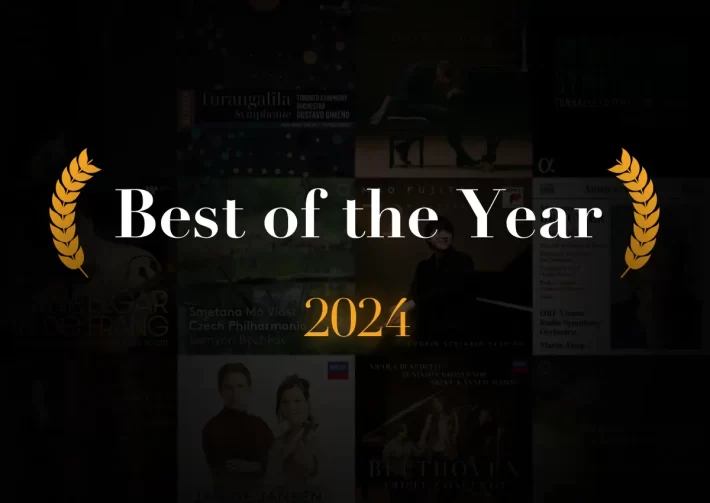As 2024 draws to a close, we reflect on the many classical music albums we’ve reviewed over the year. Each week, our team at The Classic Review delves into a wide range of recordings, and now it’s time to highlight the ones that left a lasting impression. Before we dive into an exciting lineup of fresh content for 2025, here are the albums that our staff members cherished most in 2024.
Mendelssohn – Symphonies, Tonhalle-Orchester Zürich – Paavo Järvi
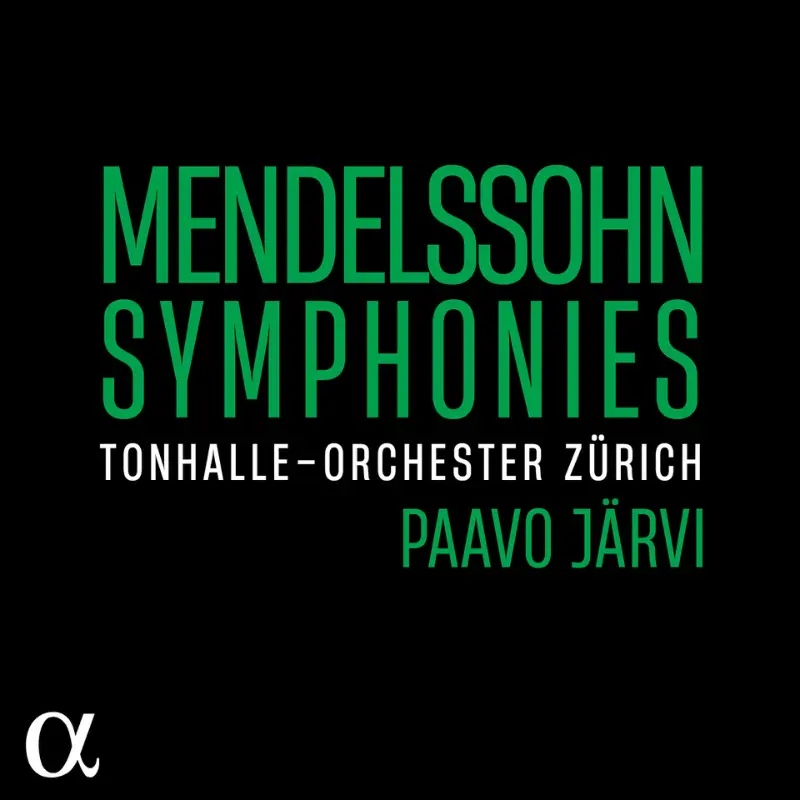
Paavo Järvi and the Tonhalle-Orchester Zürich deliver a compelling Mendelssohn symphonic cycle that combines elegance, energy, and remarkable clarity. This recording highlights Järvi’s meticulous approach to phrasing and balance, ensuring that every orchestral detail shines. The performances evoke a sense of Mendelssohn’s romanticism while respecting his classical sensibilities, blending spirited energy with polished refinement. Alpha’s excellent engineering creates a crystalline soundstage that balances warmth with precision, allowing the intricate woodwind and string writing to come through beautifully. This release cements Järvi and the Tonhalle-Orchester as leading interpreters of Mendelssohn, offering a fresh perspective that will appeal to both seasoned enthusiasts and new listeners.
Chopin – Études – Yunchan Lim
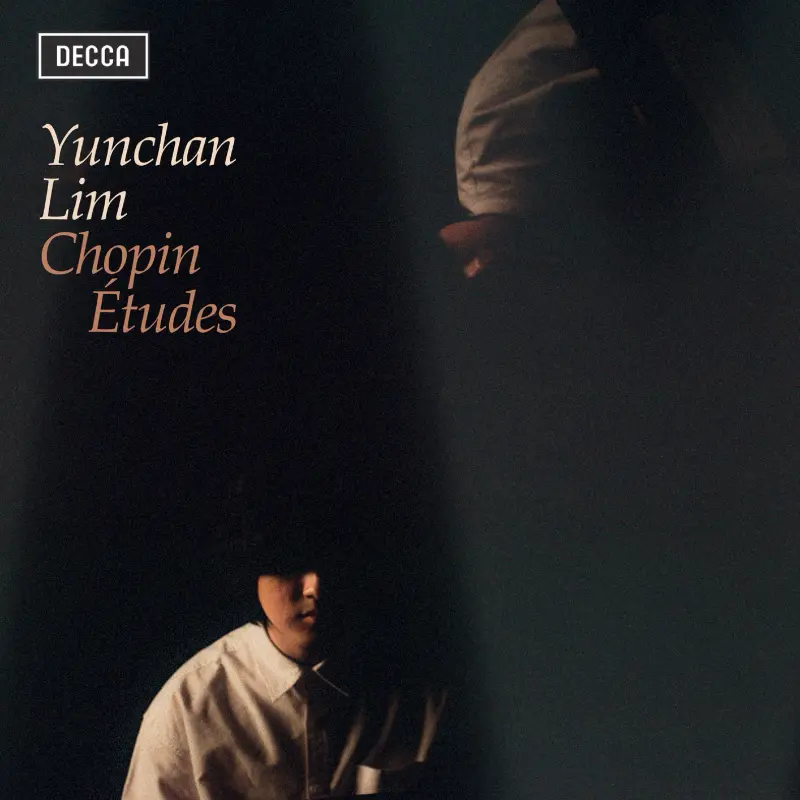
Yunchan Lim’s recording of Chopin’s Études showcases a breathtaking combination of technical mastery, poetic expression, and profound maturity, remarkable for such a young artist. The études are performed with a sense of narrative and individuality, each emerging as a distinct world of its own. Particularly striking is Lim’s effortless control of dynamics and phrasing, as seen in Étude Op. 10, No. 3, where he brings out its lyrical melancholy with unmatched sensitivity. The rapid-fire precision of Étude Op. 10, No. 4, and the stormy drama of Op. 25, No. 11, demonstrate Lim’s astonishing technical facility without ever feeling mechanical. The recording quality is exceptional, capturing the full spectrum of Lim’s tonal palette, from delicate whispers to thunderous climaxes. This album establishes Lim as a pianist of extraordinary talent, offering a fresh and deeply engaging take on Chopin’s iconic works.
Messiaen – Turangalîla-Symphonie – Hamelin, Forget, Gimeno
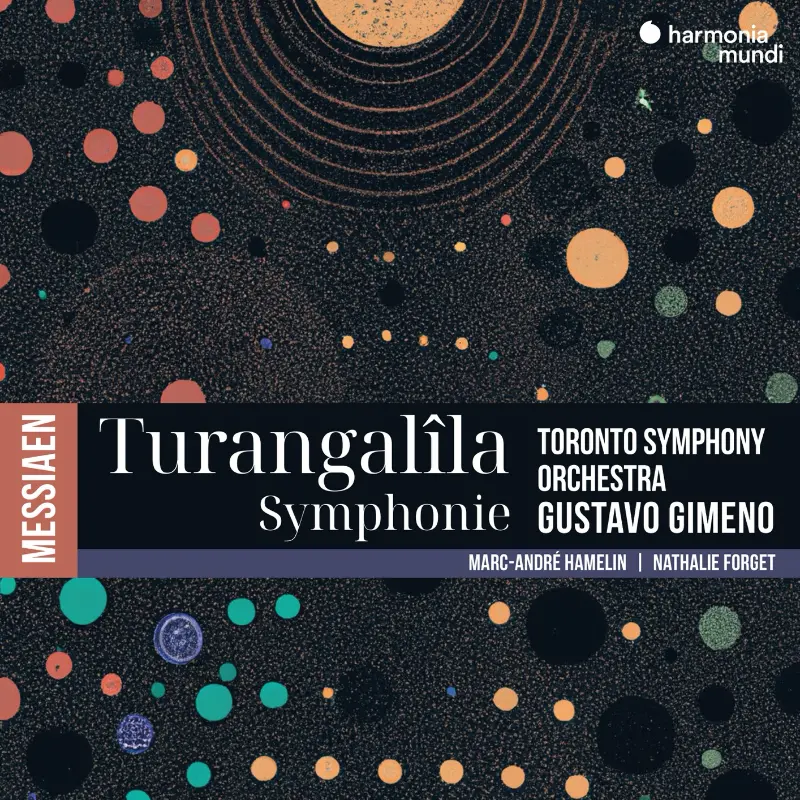
The Turangalîla-Symphonie, Olivier Messiaen’s monumental celebration of love and the cosmos, receives a thrilling and authoritative performance here, featuring Marc-André Hamelin and Nathalie Forget. Under the direction of Gustavo Gimeno and Toronto Symphony Orchestra, this recording captures the work’s kaleidoscopic textures, rhythmic vitality, and spiritual intensity. Hamelin’s virtuosic pianism and Forget’s masterful handling of the ondes Martenot add an electrifying edge to the performance, particularly in the ecstatic “Joie du sang des étoiles” movement. Gimeno’s interpretation strikes a fine balance between precision and passion, navigating the symphony’s sprawling architecture with clarity and control. The orchestral textures are vividly rendered, with shimmering strings, vibrant brass, and intricate percussion all contributing to the work’s otherworldly atmosphere. The recorded sound is equally impressive, capturing the symphony’s dynamic extremes and subtle nuances with exceptional fidelity. Altogether, this performance is a triumph, offering a fresh and exhilarating perspective on one of the 20th century’s most iconic masterpieces.
Alexandre Kantorow – Brahms and Schubert

Alexandre Kantorow continues to amaze with his latest recording, pairing works by Brahms and Schubert in an imaginative and deeply moving program. Kantorow’s performance of Brahms’ Piano Sonata No. 2 is a masterclass in expressive power and technical brilliance. He captures the sonata’s stormy character while bringing out its lyrical interludes with tender warmth. In Schubert, Kantorow’s delicate touch and natural phrasing, combined with an astonishing virtuosity in the final two movements of the Wanderer Fantasy, unveil the work’s restless energy and unsettling grandeur, its beauty laced with a sense of existential dread. BIS’ SACD engineering is superb, providing a clear yet warm balance that allows Kantorow’s dynamic range to shine. This album reinforces Kantorow’s reputation as one of the most exciting young pianists of his generation, offering interpretations that are both intellectually insightful and emotionally resonant.
Elgar – Violin Concerto – Vilde Frang, Robin Ticciati
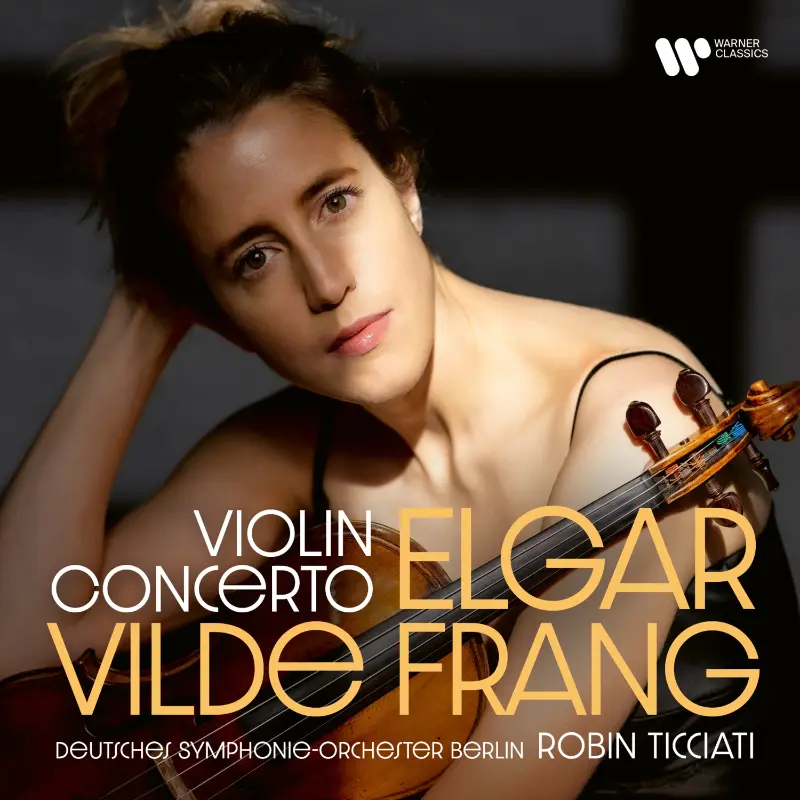
Vilde Frang’s rendition of Elgar’s Violin Concerto, under the baton of Robin Ticciati, stands out as a deeply introspective and personal interpretation. Frang’s approach to the concerto is marked by an intimate understanding of Elgar’s lyrical and emotional complexities. Her tone is warm and expressive, with a subtle vibrato that suits the work’s nostalgic character. Ticciati and the Deutsches Symphonie-Orchester Berlin provide sensitive accompaniment, supporting Frang’s delicate phrasing while amplifying the concerto’s sweeping moments. The interplay between soloist and orchestra feels conversational, capturing the essence of Elgar’s wistful dialogue. Frang avoids over-sentimentalizing the music, opting for a nuanced approach that emphasizes depth over drama. The slow movement, in particular, is a highlight, with Frang delivering a touching interpretation that lingers long after the final note.
Mao Fujita – 72 – Preludes by Chopin, Scriabin, Yashiro
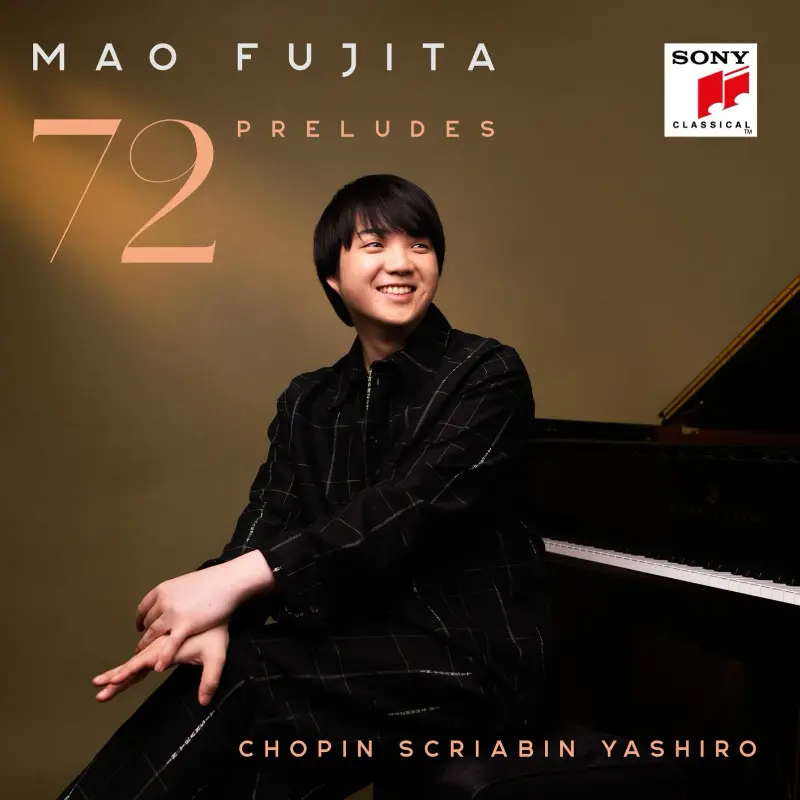
Mao Fujita’s ambitious project of performing all 72 preludes by Chopin, Scriabin, and Yashiro is nothing short of extraordinary. His playing is marked by crystalline articulation, lyrical phrasing, and a deep sensitivity to the contrasting styles of the three composers. Chopin’s preludes are rendered with poetic intimacy, while Scriabin’s are imbued with a sense of mystery and fiery intensity. Fujita’s interpretation of Yashiro’s rarely performed preludes is a revelation, bringing these modernist gems to life with clarity and passion. Fujita’s ability to seamlessly transition between the Romantic and 20th-century idioms is remarkable, demonstrating a profound understanding of each composer’s unique voice.
Smetana – Má Vlast – Czech Philharmonic, Semyon Bychkov
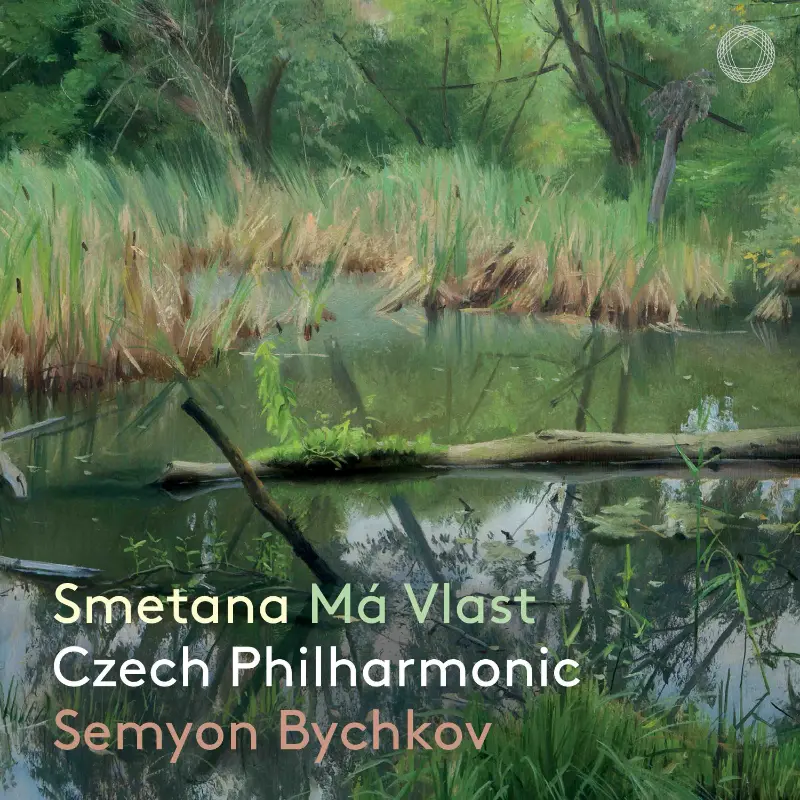
Semyon Bychkov and the Czech Philharmonic deliver an impassioned performance of Smetana’s Má vlast, a cornerstone of Czech musical heritage. Bychkov’s interpretation strikes a balance between majestic grandeur and heartfelt intimacy, capturing the spirit of each tone poem with precision and emotional depth. Throughout, Bychkov’s nuanced control of dynamics and phrasing brings out the work’s rich textures and sweeping melodies. The recording’s sound quality is exemplary, with a spacious yet detailed mix that showcases the Czech Philharmonic’s unmistakable timbre. This interpretation stands as both a tribute to Smetana’s genius and a testament to Bychkov’s thoughtful artistry.
Beethoven – Triple Concerto – Benedetti, Kanneh-Mason, Grosvnenor
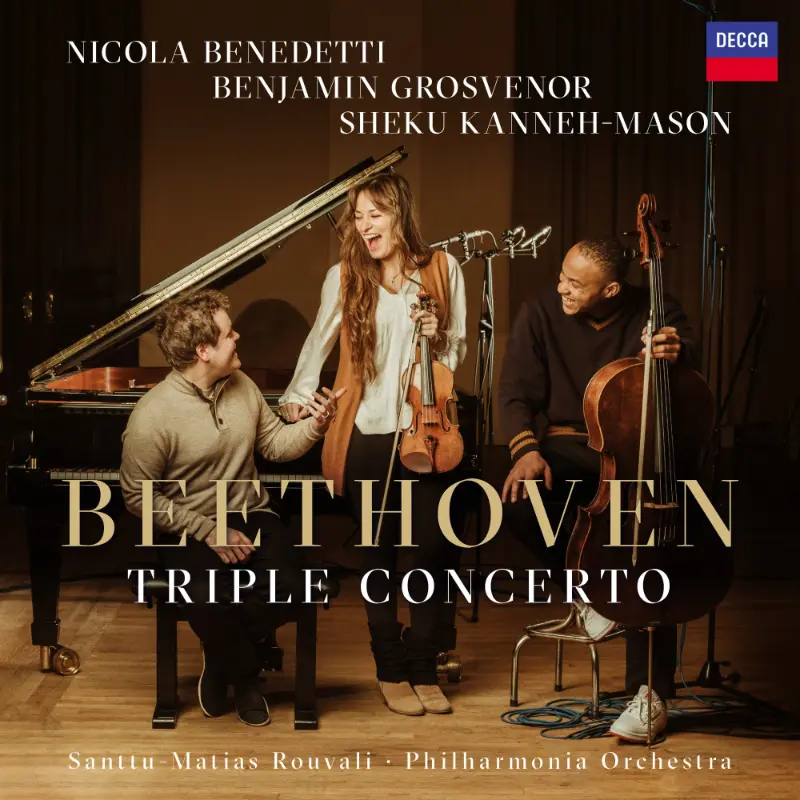
This vibrant recording of Beethoven’s Triple Concerto features Nicola Benedetti (violin), Sheku Kanneh-Mason (cello), and Benjamin Grosvenor (piano), accompanied by the Philharmonia Orchestra under Santtu-Matias Rouvali. The trio brings an exciting freshness to the work, blending youthful energy with deep interpretative insight. The Largo movement highlights Kanneh-Mason’s cello artistry, with warm, resonant tones and expressive phrasing. Benedetti’s violin sings with vocal-like quality, while Grosvenor adds a glassy, flowing character to his piano part, particularly in the more reflective passages. The orchestra provides robust yet nuanced support, complementing the soloists. The album also includes Beethoven’s folk song arrangements for voice and piano trio, with bass-baritone Gerald Finley adding a nostalgic touch. Combining spirited musicianship with thoughtful curation, this album offers a standout addition to any Beethoven collection.
Margaret Brouwer – Rhapsodies – Marin Alsop
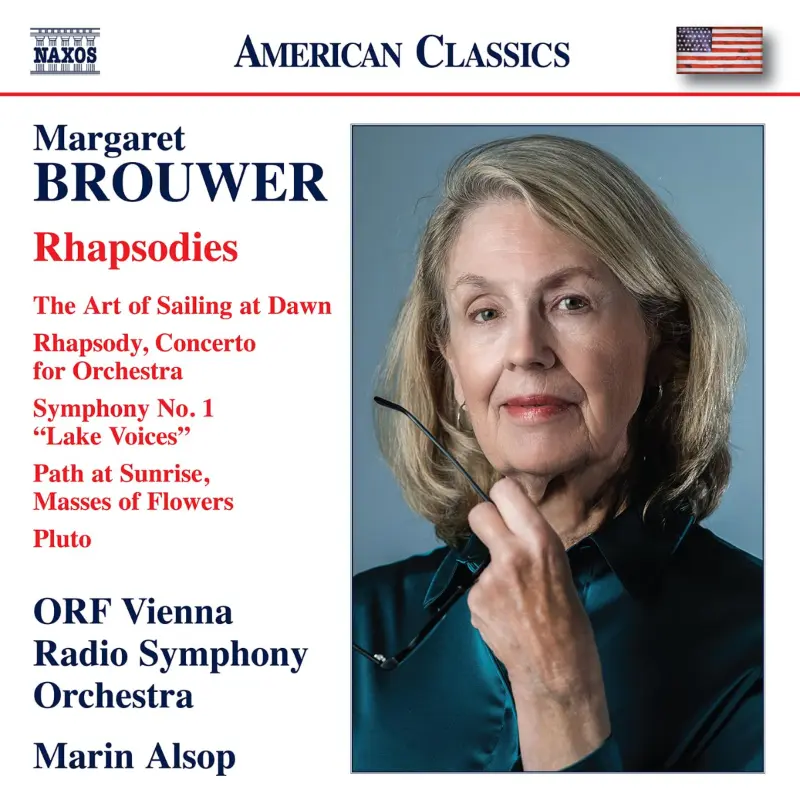
Brouwer’s compositions are richly textured and emotionally resonant, blending modern techniques with lyrical beauty. The title piece, ‘Rhapsody, Concerto for Orchestra’, is a kaleidoscope of colors and moods, ranging from sweeping grandeur to introspective calm. Other works on the album showcase Brouwer’s ability to craft compelling narratives through music, with Alsop and the ORF Vienna Radio Symphony Orchestra bring out the vivid details of Brouwer’s orchestration. This album is a rewarding listen for fans of contemporary classical music, offering a rich and engaging portrait of Brouwer’s unique voice.
Henselt & Bronsart – Piano Concertos – Paul Wee
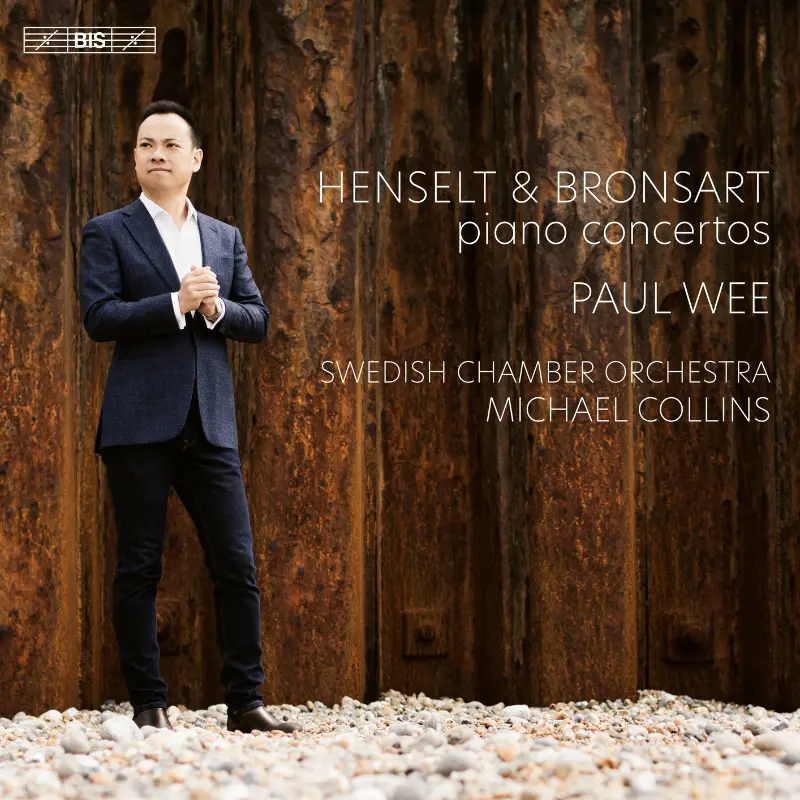
Paul Wee’s recording of piano concertos by Henselt and Bronsart is a remarkable exploration of neglected Romantic repertoire. Wee’s virtuosic playing brings these forgotten works to life, showcasing their intricate piano writing and lush orchestral textures. Henselt’s concerto dazzles with its technical demands and lyrical beauty, while Bronsart’s concerto impresses with its dramatic flair and rich harmonic language. Wee’s performance is both technically flawless and deeply expressive, capturing the emotional depth of these under-appreciated works. The orchestral accompaniment is equally commendable, providing a supportive and vibrant backdrop to Wee’s dazzling pianism. This album is a significant contribution to the Romantic concerto repertoire, offering listeners a chance to discover two hidden gems brought to life by a consummate artist.
Pergolesi – Stabat Mater, Vivaldi: Nisi Dominus – Patchornik, Engeltjes, PRJCT Amsterdam
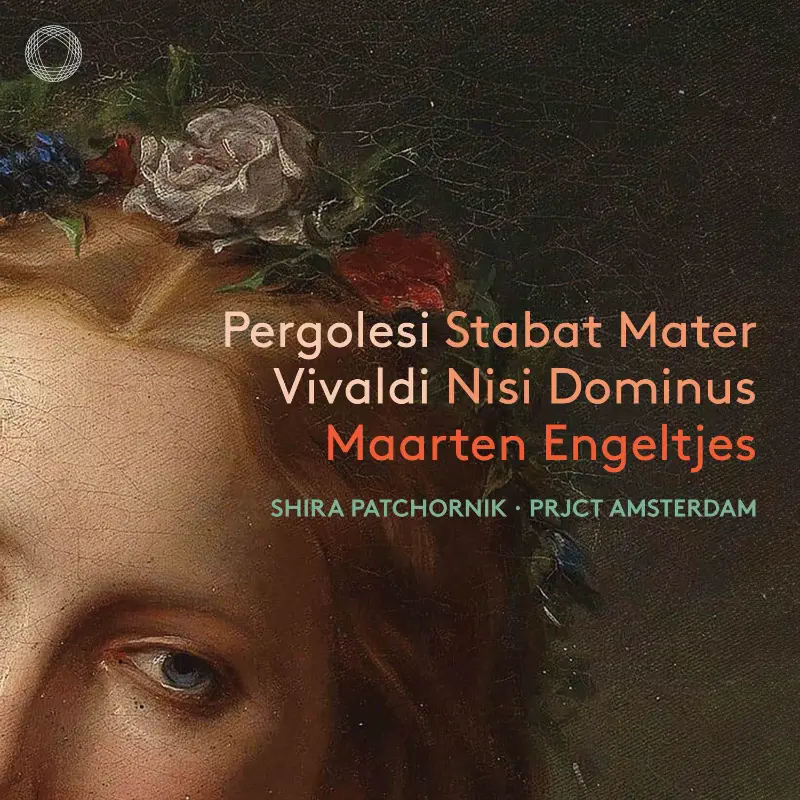
This album pairs Pergolesi’s Stabat Mater with Vivaldi’s Nisi Dominus, offering an exquisite blend of Baroque sacred music. The performances by soprano Shira Patchornik and countertenor Maarten Engeltjes, who also conducts the excellent PRJCT Amsterdam, are marked by clarity, expressiveness, and historical sensitivity. Pergolesi’s Stabat Mater is rendered with an ethereal beauty, with the voices intertwining seamlessly to convey the work’s emotional weight and devotional character. Vivaldi’s Nisi Dominus highlights Engeltjes’ artistry as both soloist and director, blending technical precision with soulful expression. The ensemble’s period-instrument approach lends authenticity to the interpretations, while the spacious acoustics enhance the music’s spiritual resonance.
Sibelius – Violin Concerto – Prokofiev – Violin Concerto No. 1 – Jansen, Mäkelä
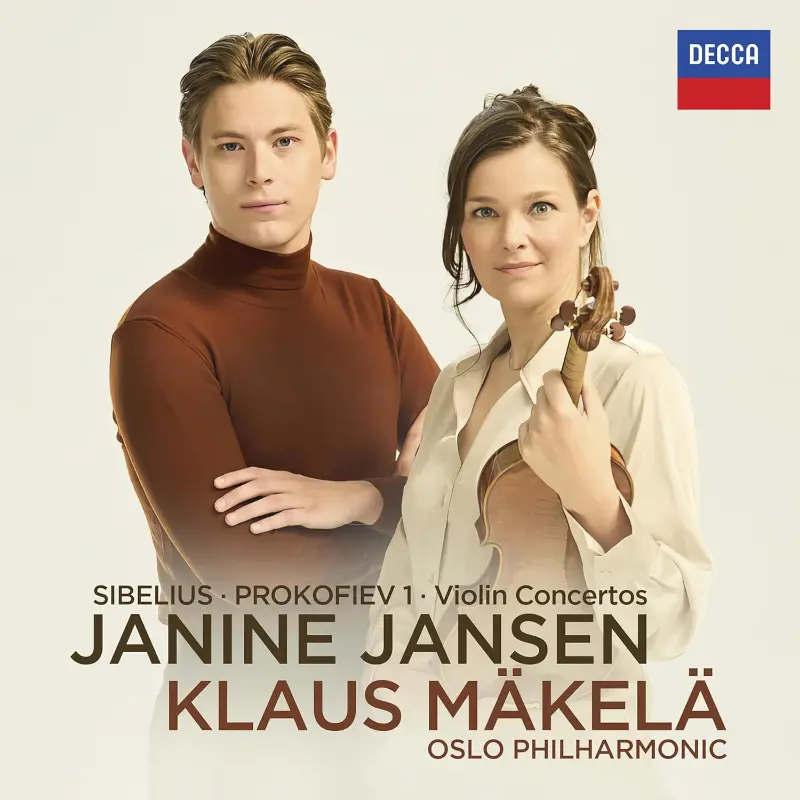
Jansen’s performance of the Sibelius is hauntingly beautiful, capturing the work’s icy brilliance and underlying intensity. Her phrasing is fluid and natural, particularly in the soaring passages of the slow movement. In the Prokofiev, Jansen brings out the concerto’s whimsical and surreal qualities, highlighting its quirky charm and rhythmic drive. Klaus Mäkelä and the Oslo Philharmonic provide superb accompaniment, offering a lush, textured sound that complements Jansen’s expressive playing. This album reaffirms Jansen’s reputation as one of the leading violinists of our time, delivering interpretations that are both technically impeccable and profoundly moving.


